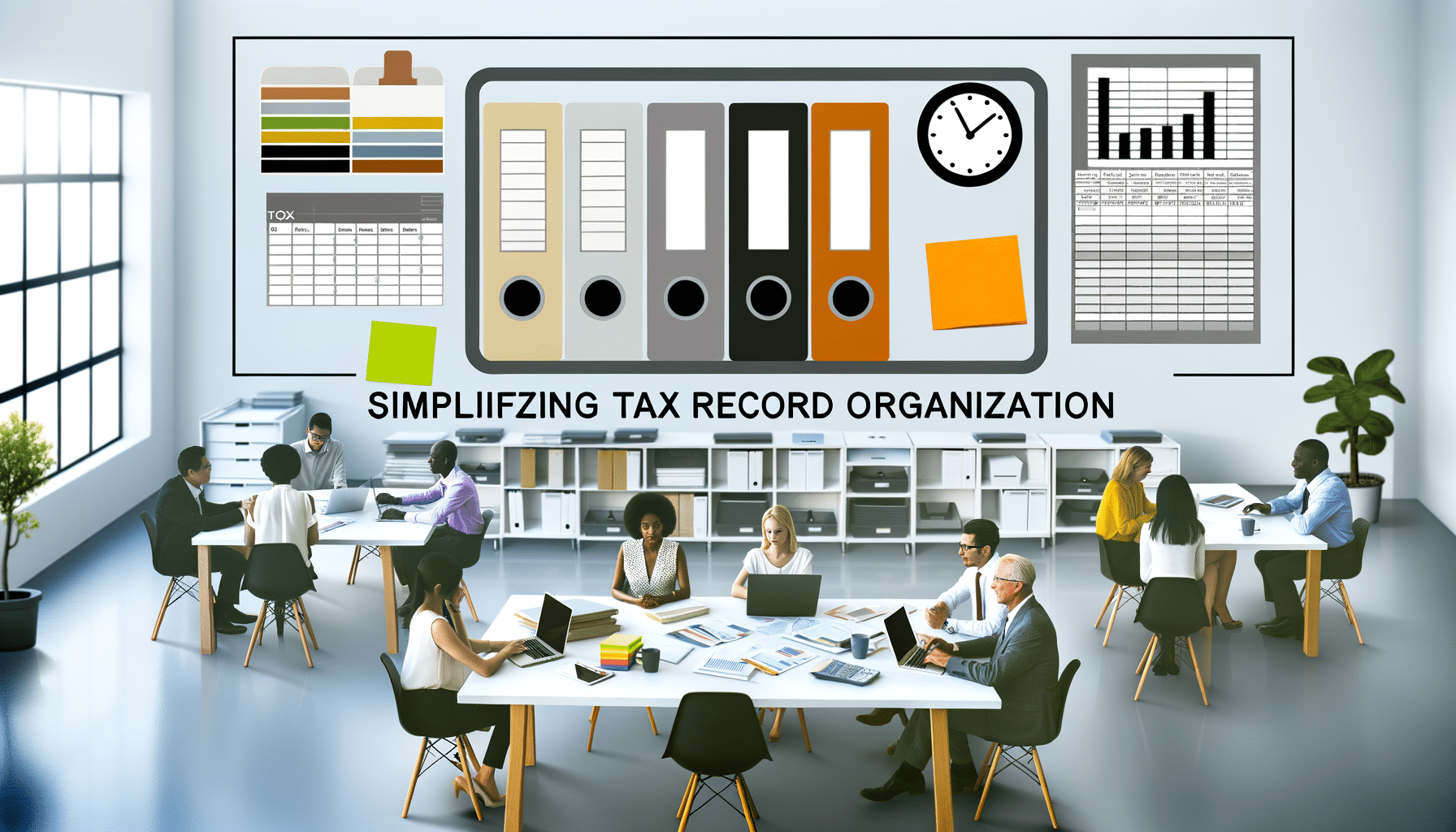- AI in Finance
- November 17, 2024
Simplifying Tax Record Organization

As a founder navigating the complexities of entrepreneurship, managing tax records efficiently has always been one of the unsung challenges. This often feels like an administrative jungle where a misstep can lead to significant financial consequences. However, the advent of artificial intelligence and blockchain technology has transformed the landscape, making it easier than ever to stay organized and compliant. In this article, I aim to offer practical insights into simplifying tax record organization, utilizing the tools and strategies we’ve nurtured here at RecordsKeeper.AI.
Understanding the Importance of Organized Tax Records
For any organization, be it a startup or a well-established enterprise, organized tax records form the backbone of financial stability and compliance. Failing to maintain accurate records can result in penalties, audits, and even legal issues. But it’s not just about avoiding risks; proper organization of tax records can actually unveil financial insights that drive strategic business decisions.
Every finance and compliance professional understands that the art of organization lies in consistency. Implementing a structured approach, aided by technology, ensures that come tax season, everything is in place. With RecordsKeeper.AI, I’ve witnessed the evolution of moving from chaotic paper trails to streamlined digital solutions.
Start with Digital Transformation
The digital age has blessed us with the means to automate and revamp record management. Transitioning tax records to a digital platform should be the first step. RecordsKeeper.AI employs AI to automate categorization and retrieval, drastically reducing the manual effort required to organize and comprehend vast quantities of information.
- Automated tagging for easy retrieval.
- Natural language queries to simplify searches.
- Centralized, cloud-based storage to prevent data loss.
These features reduce the likelihood of human error and provide peace of mind knowing your records are accessible but secure.
Leverage Policy Management for Consistency
If there’s one lesson I’ve learned in my journey, it’s that policies act as silent architects, shaping the structure and flow of record management. Incorporating an efficient policy management system enables the enforcement of data retention and deletion protocols, safeguarding historical tax records while ensuring regulatory compliance.
With automated compliance tools, companies can align their operations with standards like GDPR and SOX, which ensure that all records are maintained within legal frameworks, thus eliminating unwanted liabilities.
Secure Data Sharing with Real-Time Tracking
In handling sensitive financial information, sharing becomes a risky affair. Utilizing RecordsKeeper.AI’s secure data rooms, compliance heads can monitor real-time activities, and manage controlled access, ensuring that only authorized individuals are privy to sensitive tax records. Every interaction within the data rooms is logged, hence creating an impeccable audit trail.
Backup and Recovery: Eliminating Risks of Loss
The fear of data loss during natural disasters or cyber-attacks is a haunting reality for many organizations. Regular automated backups provide a safe cushion against such unpredictability. Through our backup systems at RecordsKeeper.AI, we offer quick recovery options that restore data without a hitch, making contingency planning not only efficient but also stress-free.
Implement Audit Logs for Transparency
Transparency is a principle that underpins the trust between an organization and its stakeholders. By maintaining detailed audit logs, businesses can provide a clear record of all activity within the system. This feature creates transparency and is crucial for internal audits, giving confidence to both the finance department and external auditors.
Conclusion: The Strategic Advantage of Simplified Organization
Efficient organization of tax records is not merely an administrative necessity but a strategic leverage point for businesses. Utilizing innovative tools like RecordsKeeper.AI, companies can not only achieve compliance but also harness insights that drive business growth and innovation. As entrepreneurship continues to evolve, aligning with technology puts enterprises a step ahead, making record management a streamlined, strategic process rather than a cumbersome chore.
Feel free to share your experiences or connect with me for further insights on revolutionizing record management. Let’s embark on this journey to simplify complexities and turn challenges into opportunities.
Toshendra Sharma is the visionary founder and CEO of RecordsKeeper.AI, spearheading the fusion of AI and blockchain to redefine enterprise record management. With a groundbreaking approach to solving complex business challenges, Toshendra combines deep expertise in blockchain and artificial intelligence with an acute understanding of enterprise compliance and security needs.
Related Posts

Handling Rush Financial Report Requests
Managing urgent requests for financial documentation.
- December 20, 2024

Seasonal Record Management for Tax Firms
Organizing records during peak tax season efficiently.
- November 24, 2024
Archives
- December 2024
- November 2024
- October 2024
- September 2024
- August 2024
- July 2024
- June 2024
- May 2024
- April 2024
- March 2024
- February 2024
- January 2024
- December 2023
- November 2023
- October 2023
- September 2023
- August 2023
- July 2023
- June 2023
- May 2023
- April 2023
- March 2023
- February 2023
- January 2023
- December 2022
- November 2022
- October 2022
- September 2022
- March 2019
Want to get more content like this?
Signup to directly get this type of content to your inbox!!
Latest Post
Organizing External Auditor Access
- December 22, 2024
Document Control in Manufacturing Plants
- December 21, 2024
Handling Rush Financial Report Requests
- December 20, 2024
Managing Record Access After Staff Changes
- December 19, 2024





